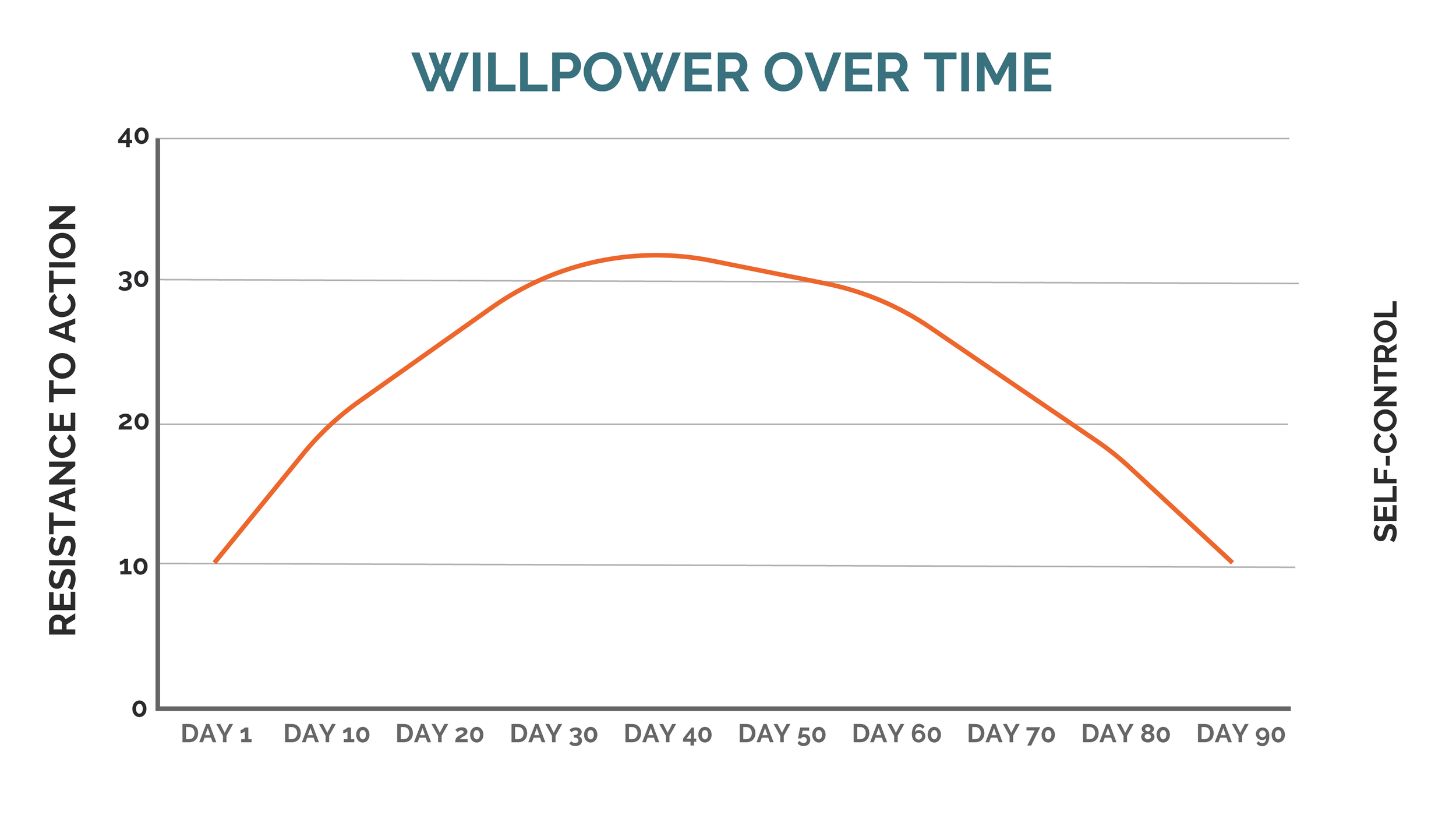
Module 1.4: The Paradox of Habit Formation
Understanding Habit Formation
Conventional wisdom suggests that if you perform a positive action consistently for about a month, it will seamlessly become part of your daily routine. While this approach has merits, it overlooks a critical aspect of human psychology: the dynamic nature of our willpower and discipline.
This oversight can lead to a common pitfall: once habits are fully integrated, they may weaken our discipline over time, increasing the likelihood of reverting to negative behaviors.
The Habit Plateau
Here's what we mean:
Emily had always wanted to lead a healthier lifestyle, so she started running every morning. At first, it was tough, but she pushed through, and soon, running became a natural part of her routine.
However, after a couple of months, she hit a habit plateau. Running wasn't hard anymore, and it didn't take any willpower for her to lace up her sneakers and hit the pavement. As a result, she stopped strengthening her willpower muscle.
Eventually, Emily caught a cold and was bedridden for a week. When she recovered, she realized that returning to her running routine felt almost impossible.
Why? Well, it had been a while since she had exercised her self-discipline. Just like a muscle, if you don't use it, you lose it!
When habits become second nature, everything seems to go smoothly. However, life inevitably throws curveballs like vacations, illness, loss, or job changes. When these disruptions occur, our weakened self-control makes it much more likely that we revert to negative behaviors we thought we had overcome.
The Dynamic Nature of Willpower
The chart below illustrates this concept visually. As we build habits, we initially push through internal resistance. Overcoming this resistance strengthens the part of our brain responsible for willpower.
However, once these habits become automatic, they no longer challenge us, causing our dynamic willpower "muscle" to weaken. This typically happens around day 40 in the example timeline below.
What Does This Mean for You?
To prevent this regression, it's essential to continually seek new challenges and keep our willpower engaged – even if it's something small each day. And even if you think you've already done an amazing job of establishing good habits!
Building habits is definitely important, but we must keep doing hard things and pushing ourselves further to have a strong willpower muscle so that when life gets in the way, as it always does, we can stay the course. This is the purpose of Neuro Nudge!

You've made it to the end of Module 1.
In Module 2, we'll explore all things Neuro-Nudge. With this framework, you'll be on your way to a more disciplined life!
To unlock the rest of the course, click the button below.

